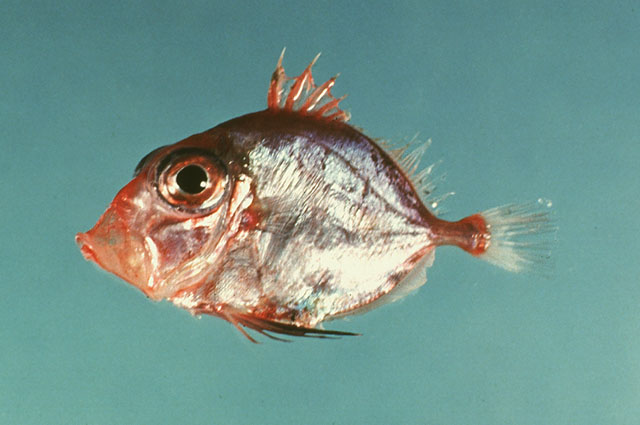| Parazenidae (Parazen), subfamily: Cyttopsinae |
| 31 cm TL (male/unsexed) |
|
bathypelagic; marine; depth range 150 - 730 m |
| Western Atlantic: Canada (Ref. 5951) to southeastern USA and northern Gulf of Mexico to western Caribbean (Ref. 7251); northern coast of South America (Ref. 5217). Eastern Atlantic: Bay of Biscay round the South African coast to Natal. Indian Ocean: Somalia (Ref. 30573) and off the south-west coast of India. Western Pacific: off Japan, eastern Australia (Ref. 7300) and New Zealand (Ref. 5755). |
|
Dorsal spines (total): 7-8; Dorsal soft rays (total): 28-30; Anal spines: 1-2; Anal soft rays: 29-30. Rosy pink and silvery in color; pelvic fins reddish with black membranes (Ref. 4253). Mouth large, oblique, highly protrusible; anteriorly directing spine in a series on supraorbital; pelvic fin spine soft, flexible; pelvic fin soft rays long, the longest reaching 5th anal ray when depressed; 1st anal spine large and immovable, 2nd one small and moveable (Ref. 13608). |
| Occurs on the continental slope (Ref. 75154). Bathypelagic (Ref. 5951). Forms schools. Feeds on other fishes and swimming decapod crustaceans (Ref. 4968). |
|
Least Concern (LC); Date assessed: 10 July 2014 Ref. (130435)
|
| harmless |
Source and more info: www.fishbase.org. For personal, classroom, and other internal use only. Not for publication.
